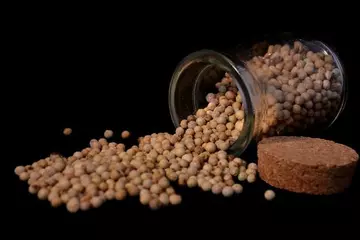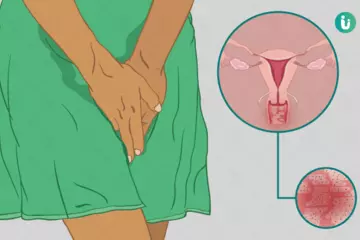What is female hypogonadism?
Female hypogonadism is a disorder or failure in the functioning of female reproductive organs, especially the ovaries. Sometimes there is a complete lack of or reduction in the release of female hormones due to a disorder in the functioning and coordination between the pituitary gland, the hypothalamus in the brain and the female sex organs. As a result, there is a decrease or complete absence in the release of follicle stimulating hormone (FSH) and luteinising hormone (LH) by the ovaries. This condition is called hypogonadotropic hypogonadism (HH).
What are its main signs and symptoms?
The chief signs and symptoms associated with female hypogonadism include:
- Absence of puberty
- Lack of development of secondary sexual characteristics, such as breasts and pubic hair
- Failure to grow in height
- Absence of periods (Read more: Amenorrhea causes and treatment)
- Frequent changes in mood
- Weakness and tiredness to carry out activities
- Hot flushes
- Absence of sense of smell (Kallmann syndrome) when hypogonadism is inherited
- Deficiency of other hormones, headache, etc. in case of tumour of pituitary gland
What are its main causes?
Female hypogonadism is either present at birth or acquired. Important causes responsible for female hypogonadism include:
- Abnormality in genes or birth defect
- Chronic diseases, including chronic infections or inflammation
- Autoimmune disorders
- Malnutrition (excessive weight loss)
- Excessive physical exercise (as in athletes)
- High doses of steroid-containing medicines
- Misuse of drugs
- Increased mental stress
- Tumour or injury related to the pituitary gland and hypothalamus
- Radiation therapy for the treatment of cancer in brain
- Iron overload
If you are tired of dieting and exercising and are not able to lose weight, then use myUpchar Ayurveda Medarodh Fat Burner Capsule, it has no side effects, order it today and avail the benefits.
How is it diagnosed and treated?
Doctors diagnose female hypogonadism with the help of:
- Detailed history of
- Symptoms
- Menarche and menstrual cycles
- Genetic conditions in the family
- Past and current illnesses
- Radiation, chemotherapy or medications like corticosteroids and opiates used in the past or currently
- Mental stress, depression and anxiety
- Physical examination for secondary sexual characteristics, such as pubic hair and breast development
- Blood tests
- FSH levels
- LH levels after injection of gonadotropin-releasing hormone (GnRH)
- Levels of thyroid hormones, prolactin hormone and testosterone
- Iron levels
- Karyotyping for detecting defects in chromosomes (e.g. Turner syndrome, Kallmann syndrome)
- Magnetic resonance imaging (MRI) of brain to detect tumours in the pituitary gland and hypothalamus
Treatment of female hypogonadism involves treating the cause. Treatment commonly involves:
- GnRH injection
- Human chorionic gonadotropin (HCG) injection
- Oral contraceptive pills containing oestrogen and progesterone
- Correction of diet and nutrition
- Management of stress
- Calcium and vitamin supplements
(Consult a doctor with online treatment app)

 OTC Medicines for Female Hypogonadism
OTC Medicines for Female Hypogonadism















